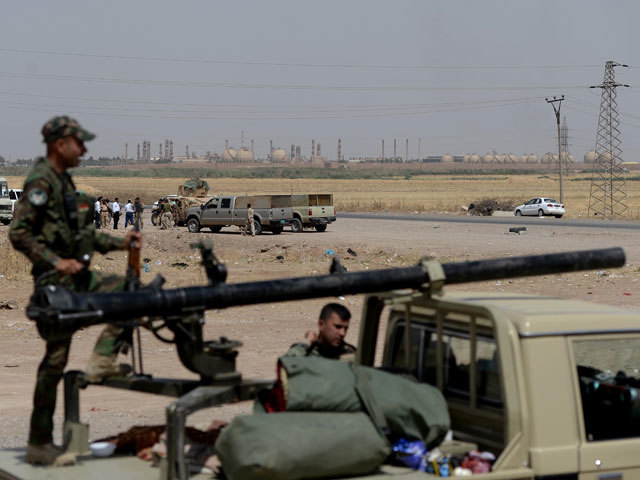
Gulf Keystone Petroleum Ltd. is sending staff back to Iraqi Kurdistan after US airstrikes eased the threat from Islamic State militants that prompted a mass evacuation of expatriate oil workers three weeks ago.
The explorer will see some personnel return next week, and Chief Executive Officer John Gerstenlauer will travel to the Kurdish capital of Erbil on the weekend.
“The security situation looks quite stable to me,” Gerstenlauer said today by phone. “Many of the airlines are resuming routes and other operators are sending people back as well.”
The region’s energy boom was threatened when Islamic State took control of a vast swath of northern Iraq and neighboring Syria. The militants have been fighting Kurdish forces known as peshmerga just 50 miles (80 kilometers) from Erbil. Donations of weapons and ammunition to the Kurds and airstrikes by US fighter jets have helped slow their advance and restore confidence in the security of the region.
Oil companies including Chevron Corp., Marathon Oil Corp., and Afren Plc evacuated personnel and halted drilling at the beginning of August. Genel Energy Plc withdrew “non-essential staff” from some of its oilfields, but said that its production was unaffected. DNO ASA may miss growth targets for its production levels, also citing service companies that evacuated workers as the cause of delays.
Gulf Keystone said that its partner Weatherford International Plc, an oilfield-services company, is sending personnel back to rigs in the region today or tomorrow.
The oil explorer reported plans to nearly double production by the end of the year, from 22,000 barrels a day to 40,000. It has a 75% stake in the Shaikan oilfield, one of the largest in the Kurdish region.
“With some luck, the security situation will remain stable,” said Gerstenlauer. “There is a good appetite for this type of crude internationally. My outlook for the rest of the year is optimistic.”